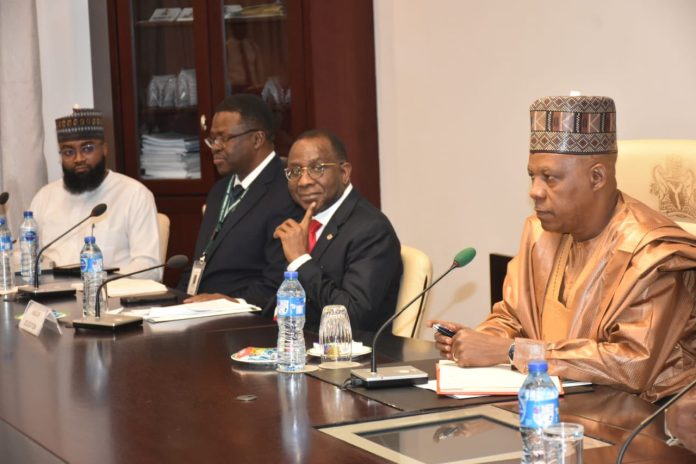Vice President Shettima Urges Swift Action for Food Security
[City, Date] – The African Development Bank (AfDB) is set to initiate the disbursement of $540 million to the first phase of states in Nigeria, marking a significant step towards the development of Special Agro-Industrial Processing Zones (SAPZs). This move, aimed at enhancing food security, has received strong support from Vice President Kashim Shettima, who emphasized the need for immediate action by the government and its development partners.
As part of the collaborative efforts between the Nigerian government and the AfDB, three states are set to benefit from the first phase of SAPZ development. The selected states include Oyo, Kaduna, and Cross River, with other states expected to follow suit as they complete the necessary documentation.
During a presentation at the Presidential Villa, Senior Special Adviser on Industrialization to the AfDB President, Prof. Banji Oyelaran-Oyeyinka, provided insights into the SAPZ initiative. He highlighted the project’s overarching goal of transforming rural landscapes into economic zones of prosperity by leveraging the potential of commercial agriculture and food production.
Oyelaran-Oyeyinka stated, “The Special Agro-Industrial Processing Zones (SAPZ) is an initiative of the African Development Bank that is aimed at turning the rural landscape into economic zones of prosperity and harnessing the power of commercial agriculture and food.” He further emphasized that the primary objective is to support inclusive and sustainable agro-industrial development in Nigeria.
The first phase of SAPZ implementation will cover seven states, namely Cross River, Imo, Kaduna, Kano, Kwara, Ogun, Oyo, and the Federal Capital Territory (FCT). Ogun state, having found a partner for the project, opted not to take the loan, allowing the funds to be redistributed among the other states.
Oyelaran-Oyeyinka outlined the plan for the next phase, involving 27 states, and stressed the importance of prioritizing states that demonstrate swift progress. Eligibility criteria, including feasibility reports, environmental impact studies, and a commitment to counterpart funding, have been established to guide the selection process.
In a related report on the visit to the Ajaokuta Steel Company Limited, Abimbola Olufore Wycliffe, Head of Investment and Technology Promotion Office at the United Nations Industrial Development Organization (UNIDO), presented a recovery plan for the company. The plan involves revitalization through rehabilitation, modernization, and expansion, with a focus on transforming the integrated steel plant into strategic business units (SBUs) to serve as profit centers.
Wycliffe recommended conducting opportunity studies for each SBU, prioritizing those with lower investments and quicker positive cash flows. She also advocated for the reinvestment of profits from each SBU into Ajaokuta Steel Company to alleviate the burden of incremental investment on the Nigerian economy and enhance foreign exchange earnings.




